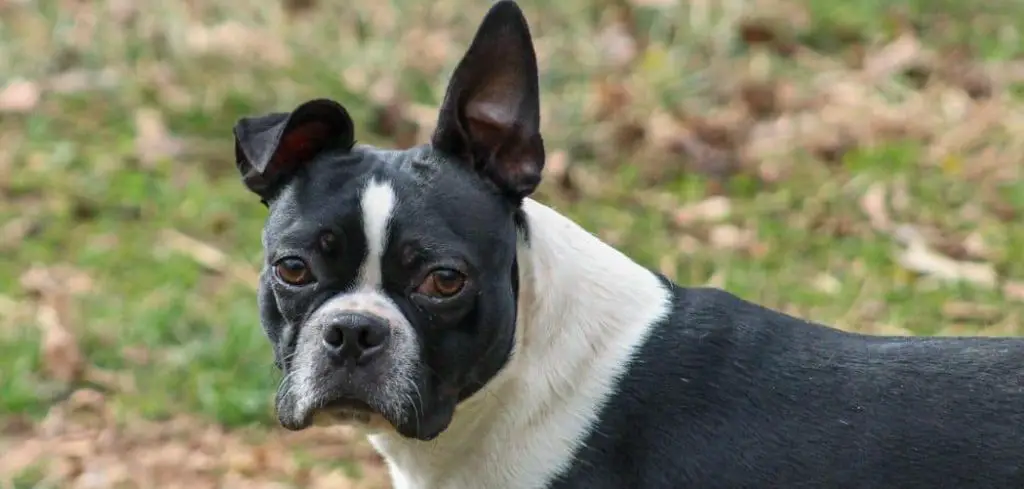When your senior dog starts panting more than usual and eating grass, it can be concerning. Both behaviors can signal anything from mild discomfort to serious health issues, especially in older dogs who are more vulnerable to illness and stress.
We outline the common causes of old dogs panting and eating grass, what you can do at home, and when to seek veterinary help.
Table of Contents
Why Is My Old Dog Panting and Eating Grass? — Why It Happens
Panting and grass-eating in senior dogs may stem from digestive upset, chronic pain, anxiety, or underlying medical conditions such as cognitive decline or organ dysfunction. While eating grass may sometimes be harmless, when combined with excessive panting, it often points to something deeper.

Common Causes of Panting and Grass Eating in Older Dogs
Gastrointestinal Discomfort
A common reason dogs eat grass is to self-soothe an upset stomach. They may do this to induce vomiting or relieve bloating.
Older dogs are more prone to gastrointestinal issues like acid reflux, gastritis, or inflammatory bowel disease.
Panting can accompany nausea or abdominal pain, especially if your dog is restless or pacing.
Watch for additional signs like drooling, lip licking, or vomiting yellow bile.
Cognitive Dysfunction Syndrome (Doggy Dementia)
Senior dogs may develop cognitive dysfunction, leading to behavioral changes such as restlessness, confusion, pacing, or eating non-food items like grass.
Panting—especially at night—can also result from confusion or stress related to cognitive decline.
You might also notice disrupted sleep patterns, staring at walls, or accidents in the house.
Read more: Dog Panting and Eating Grass (When it’s just habit—and when it’s not)
Pain or Arthritis
Chronic pain from arthritis or joint degeneration can cause panting due to physical discomfort.
Some dogs might chew or eat grass as a form of distraction or to cope with their stress.
Pain-related panting often increases after activity, during weather changes, or when trying to lie down or get up.
Nausea from Kidney or Liver Disease
Older dogs are at higher risk for metabolic diseases such as kidney or liver dysfunction.
These can cause nausea and increased thirst, leading to panting and the urge to eat grass.
Other signs might include bad breath, loss of appetite, vomiting, or changes in urination.
Anxiety or Stress
As dogs age, they may become more sensitive to environmental changes, noise, or separation, leading to anxiety.
Panting is a key symptom of stress, and eating grass may be a compulsive behavior or a way to self-soothe.
Triggers may include thunderstorms, new pets, travel, or changes in routine.
Heat or Medication Side Effects
Older dogs don’t regulate their body temperature as efficiently, making them prone to overheating and panting.
If your dog is on medications like prednisone or other steroids, increased panting is a common side effect.
Steroid use can also cause increased thirst and appetite, sometimes resulting in unusual behaviors like grass eating.
What to Do If Your Old Dog Is Panting and Eating Grass
Observe closely. Track when the behavior occurs, how long it lasts, and any patterns (e.g., after meals, during walks, at night).
Prevent excessive grass eating. While some is okay, too much can lead to vomiting or even intestinal blockage.
Create a calm environment. Provide a quiet space and minimize triggers if anxiety seems to be the cause.
Hydrate. Ensure your dog has access to clean, cool water at all times.
Offer a gentle diet. A bland diet (e.g., boiled chicken and rice) can help settle the stomach.
When to Call or Visit Your Vet
Contact your vet if your senior dog:
Is panting heavily for no clear reason
Eats grass excessively or compulsively
Shows signs of nausea, vomiting, or diarrhea
Has other symptoms like lethargy, poor appetite, or bad breath
Has recently started new medications
Your veterinarian may recommend bloodwork, abdominal imaging, or pain management strategies depending on the findings.
Read more: Dog Panting and Not Eating (What to do)
Key Takeaway
Panting and grass-eating in older dogs are signs worth investigating—especially when they appear together. While sometimes harmless, these behaviors can signal discomfort, digestive problems, anxiety, or age-related diseases.
Don’t dismiss changes in your senior dog’s habits. A timely vet visit can help identify the root cause and keep your dog comfortable and healthy in their golden years.
